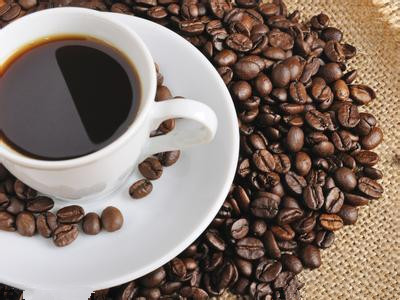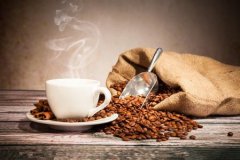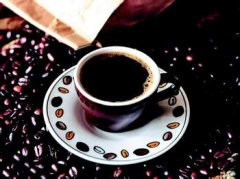Coffee bean roasting in the sense of basic knowledge

Chinese baking
When we bake deeper and more sugar begins to be carbonized or burned, this is called synonymous baking, which is usually popular around Florence with this degree of espresso. This kind of formula produces slightly darker beans with a bitter flavor. But the baking degree is not deep enough to burn out all the flavor characteristics of the production area, and the formula of the middle meaning is mainly another type of balance, that is, the combination of bitterness, remaining sugar and flavor characteristics of the production area. There is more or less a hint of smoky aftertaste in Chinese-style espresso.
Using unstable boiling water temperature to extract Zhongyi formula (most espresso machines on the market almost have a water temperature change of more than six degrees Fahrenheit), the espresso of Zhongyi formula still has a stable performance, so this type of formula is the most suitable for general baking retailers and, of course, for high-pole roasters to sell. The advantage of the Zhongyi formula is that in case the bar staff is slightly negligent and the amount of espresso flows down exceeds the standard, the coffee of the Zhongyi formula will still not be sour, thin in texture, or astringent, and will only lack some sweetness compared to the Beiyi formula beans (even if the Zhongyi formula is carefully brewed, the sweetness will not be better than the carefully brewed Beiyi formula espresso). In the Chinese formula, because the degree of carbonization is slightly higher, and carbon itself is a chemically stable ingredient, it doesn't matter what stage of machine is used to brew this kind of formula, or it doesn't matter if you are not careful when making it. Anyway, there must be bitterness caused by carbonization in the cup.
There is a reason why Italian coffee is roasting deeper and deeper to the south. One hypothetical theory is that the amount of spices used by residents and their taste preferences are affected by different climates. Since ancient times, residents in the north have been convenient to preserve food and meat because of the lower average temperature. In contrast, the weather in the south is hotter, so residents have to rely on large amounts of spices to preserve their food. Many anthropologists believe that this has a certain impact on the taste preferences of residents in different regions, and may also explain why southerners prefer more intensive foods and drinks. The application of this theory to coffee explains why southerly coffee tastes more bitter. Of course, these are just theories, which can not be applied in a pluralistic society like the United States. However, if most of your customers belong to the southern ethnic group, you may find that they prefer the taste of deeper-roasted coffee.
Important Notice :
前街咖啡 FrontStreet Coffee has moved to new addredd:
FrontStreet Coffee Address: 315,Donghua East Road,GuangZhou
Tel:020 38364473
- Prev

Basic knowledge of coffee bean roasting Beiyi roasting
For Beiyi baking, which is relatively shallow (popular around Milan), this formula produces a cup of espresso that tastes like sugar water. Personally, I think this kind of formula is the best combination of sweetness and baked drupe flavor, but it is the most likely to cause problems in the extraction stage. The Beiyi formula has the greatest potential to produce full of
- Next

Basic knowledge of coffee bean baking Nanyi roasting
Nanyi baking is the deepest baking stage of espresso beans. In this kind of espresso, bitterness / carbon taste is the main flavor, overshadowing most sweetness and regional flavor characteristics. Napoli is the representative region in Nanyi, where you can find the deepest baked espresso in the world, leaving only a little sweetness and regional flavor characteristics. If you
Related
- Beginners will see the "Coffee pull flower" guide!
- What is the difference between ice blog purified milk and ordinary milk coffee?
- Why is the Philippines the largest producer of crops in Liberia?
- For coffee extraction, should the fine powder be retained?
- How does extracted espresso fill pressed powder? How much strength does it take to press the powder?
- How to make jasmine cold extract coffee? Is the jasmine + latte good?
- Will this little toy really make the coffee taste better? How does Lily Drip affect coffee extraction?
- Will the action of slapping the filter cup also affect coffee extraction?
- What's the difference between powder-to-water ratio and powder-to-liquid ratio?
- What is the Ethiopian local species? What does it have to do with Heirloom native species?

